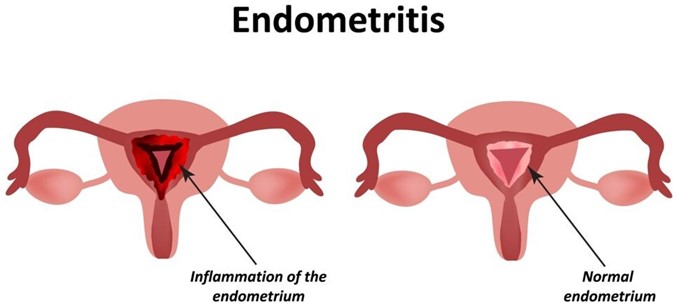Which finding should the practical nurse (PN) instruct the postpartum client to report to the charge nurse?
Increased diaphoresis during the day and night.
Breast engorgement on the fourth postpartum day.
Lochia color that changes to light pink or white.
Sudden or persistent temperature above 100.5 F (38.0 C).
The Correct Answer is D
This is the finding that the PN should instruct the postpartum client to report to the charge nurse because it may indicate an infection, such as endometritis, mastitis, or urinary tract infection, that requires prompt treatment. The PN should also instruct the client to monitor for other signs of infection, such as foul-smelling lochia, redness or tenderness of the breasts, or dysuria.

A. Increased diaphoresis during the day and night is a normal finding in the postpartum period and does not need to be reported. It is caused by hormonal changes and fluid shifts that occur after delivery.
B. Breast engorgement on the fourth postpartum day is a normal finding in the postpartum period and does not need to be reported. It is caused by increased blood flow and milk production in the breasts.
C. Lochia color that changes to light pink or white is a normal finding in the postpartum period and does not need to be reported. It indicates that the uterine lining is healing and regenerating after delivery.
Nursing Test Bank
Naxlex Comprehensive Predictor Exams
Related Questions
Correct Answer is ["A","C","D"]
Explanation
The correct answers are:
A. Oatmeal is a good choice for breakfast.
C. Add lentils and black beans to soups.
D. Increase green leafy vegetables in the diet. Choice A rationale:
Oatmeal is a good choice for breakfast because it is a vegetarian option that is rich in iron. It contains non-heme iron, which is the type of iron found in plant-based foods. Non-heme iron may not be as easily absorbed as heme iron (found in animal products), but it can still contribute to increasing iron levels in the body, especially when combined with other sources of iron.
Choice B rationale:
Eat red meat just until the anemia is resolved is not a suitable instruction for a vegetarian client. Red meat is a source of heme iron, which is not part of a vegetarian diet. While heme iron is more easily absorbed by the body, there are other plant-based sources of iron that can be recommended to the client without compromising their dietary preferences.
Choice C rationale:
Lentils and black beans are excellent choices for a vegetarian client to increase iron intake. Both foods are rich in iron, and they also contain other nutrients that aid in iron absorption, such as vitamin C. Including lentils and black beans in soups can be a tasty and nutritious way to enhance iron intake.
Choice D rationale:
Increasing green leafy vegetables in the diet is another appropriate recommendation for a vegetarian client. Green leafy vegetables, such as spinach and kale, contain non-heme iron, as well as other essential vitamins and minerals that contribute to overall health. Combining them with vitamin C-rich foods can enhance iron absorption.
Choice E rationale:
Take two prenatal vitamins with iron daily is not necessary since the healthcare provider already prescribed one prenatal vitamin with iron daily. Taking additional supplements without medical advice can lead to an excessive intake of certain nutrients, which may have adverse effects on health.
Correct Answer is B
Explanation
Choice A rationale:
Asking another nurse about administering adult dosages to children may provide some insights, but it is not a reliable or definitive source of information. The PN should directly communicate with the healthcare provider who wrote the prescription to ensure accuracy and safety.
Choice B rationale:
Call the healthcare provider and clarify the prescription.
Choice C rationale:
While requesting verification from the charge nurse is reasonable, the charge nurse may not have the authority to change or clarify the prescription. The most appropriate action is to directly contact the healthcare provider responsible for the child's care.
Choice D rationale:
Telling the pharmacy to send an accurate child's dosage assumes that the pharmacy made an error, which may not be the case. The PN should confirm the prescription with the healthcare provider to avoid potential mistakes or misunderstandings.
Whether you are a student looking to ace your exams or a practicing nurse seeking to enhance your expertise , our nursing education contents will empower you with the confidence and competence to make a difference in the lives of patients and become a respected leader in the healthcare field.
Visit Naxlex, invest in your future and unlock endless possibilities with our unparalleled nursing education contents today
Report Wrong Answer on the Current Question
Do you disagree with the answer? If yes, what is your expected answer? Explain.
Kindly be descriptive with the issue you are facing.
